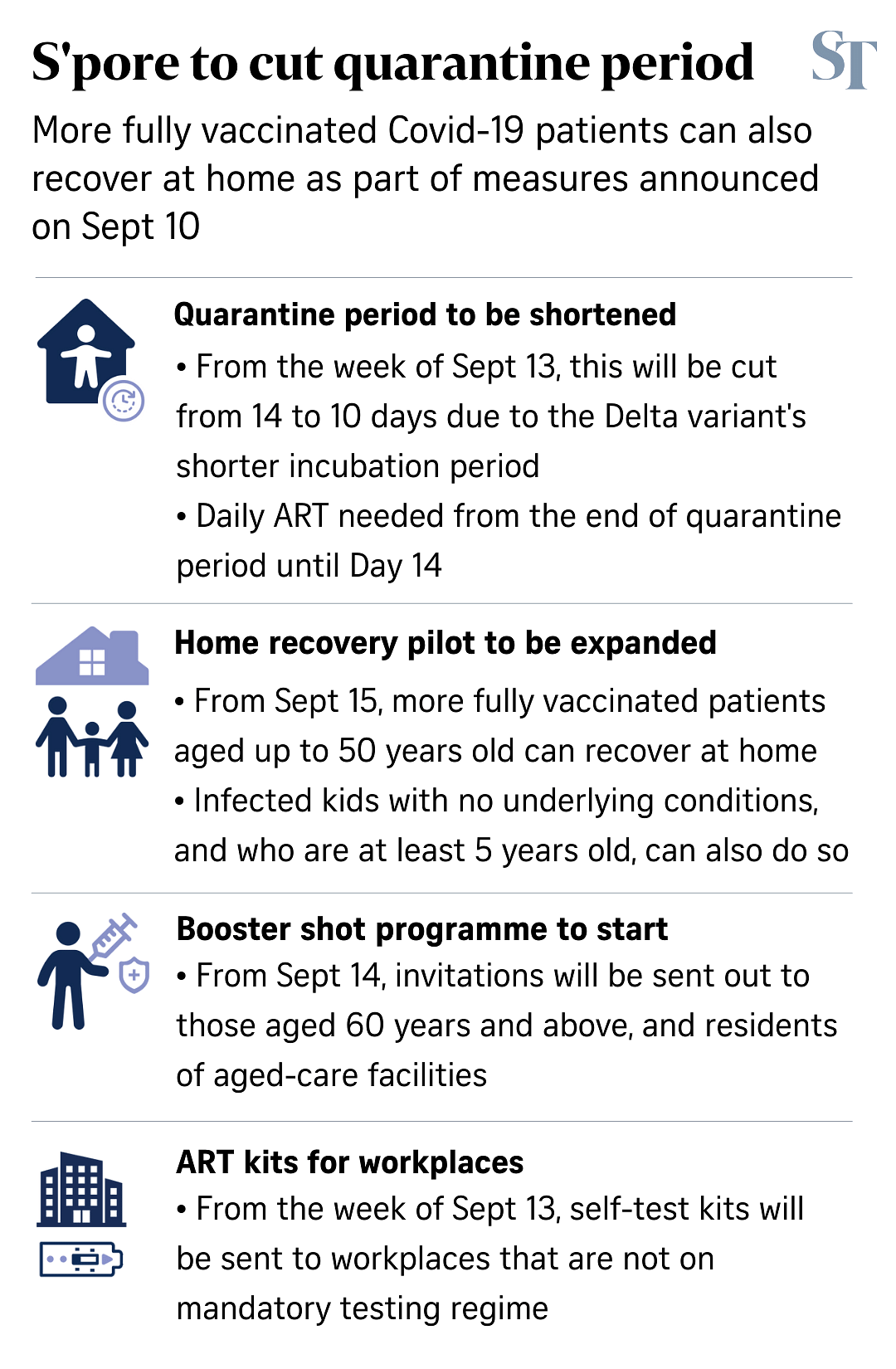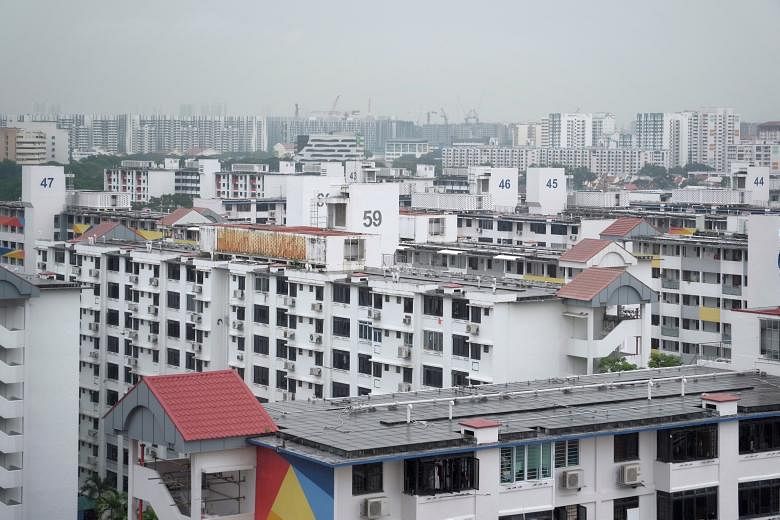SINGAPORE - More fully vaccinated Covid-19 patients will be able to recover at home should they get infected.
With such individuals mostly showing mild symptoms or none at all if infected, the Ministry of Health (MOH) announced on Friday (Sept 10) that it would expand home recovery as the default care management protocol for more fully vaccinated individuals.
This will take place from next Wednesday, following an encouraging pilot involving 21 such patients.
Parents of children aged between five and 11 will also be able to care for them at home should their child become infected. The child will have to be assessed by the hospital to be clinically fit for home recovery. Specific details for this measure are yet to be announced.
The Straits Times takes a look at how the home recovery scheme works for those who are vaccinated.
1. Who is eligible?
The scheme will be progressively expanded to include vaccinated Covid-19 patients up to 50 years old. They must have no significant comorbidities (the presence of two or more diseases or medical conditions) or underlying illnesses.
Once notified of their Covid-19 positive results, these individuals should immediately isolate themselves at home.
2. What is a suitable house setting?
Patients must have their own room with an adjoining toilet. Alternatively, they can stay alone in a house.
They must not be living with any vulnerable person, including someone who is above 80 years old or is pregnant. Members of their household must also be fully vaccinated.
Each patient will be issued an isolation order. He will be required to wear a wristband tag to ensure that he adheres to the required movement restrictions and not leave the designated room at any time during the period of isolation. If found guilty of violating the restrictions, a first-time offender may be fined up to $10,000 or given six months' imprisonment, or both.
3. How will patients be cared for?
A fully vaccinated Covid-19 patient will have access to telemedicine services round the clock. The patient will have to report health readings, such as temperature, pulse rate and oxygen saturation three times a day. He will also receive routine calls to report his condition and location.
4. What does it mean for household members?
Household members who are close contacts of the patient will be put under home quarantine, and must adhere to requirements such as staying home at all times.
Household members should opt for contactless transactions and deliveries, and collect purchases only when no one is outside the main door.
They should avoid contact with the patient, who should take precautions such as wearing a mask when opening the door to place dishes or laundry outside the room.
5. When can patients be discharged?
A patient will be discharged after completing his isolation order. Since Tuesday, the length of isolation for fully vaccinated Covid-19 patients has been shortened to seven days into their illness for patients with undetectable or very low viral loads.
More details about the home recovery scheme can be found at this website.
Read next - Shorter quarantine, more Covid-19 patients can recover at home: New measures at a glance



